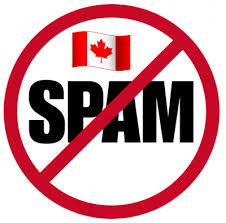The Holiday is Over and So is Canada's Anti-Spam Law Grace Period

Canada's anti-spam legislation (CASL) has been in effect for over three years, but if you haven't addressed any of the required changes, you'd better get to work. The grace period for implied consent ended almost a week ago and companies can be held liable for non-compliance.
According to the CASL website, this legislation is designed "to help protect consumers and businesses alike by deterring the most damaging and deceptive forms of spam from occurring in Canada, creating a more secure online environment." The law requires that companies gain a consumer's consent in order to send them email. This law applies to all companies doing business in Canada regardless of origin.
There are four steps you must follow to ensure your emails are compliant.
For most companies these steps will be enough to meet consent criteria. You must also maintain data regarding consent, so be sure to use an email application or marketing automation tool that tracks the recipient's status, opt in/out dates, original contact sources and whether permission is express or implied.
Canada is seeking to protect consumers and businesses in other ways, as well. Harvesting personal information via computer programs or accessing a computer application or software also violates CASL. Of course, installing a program on another person's computer system without consent is also a violation of this law.
CASL applies not just to emails but also any forms on your website. Be sure to include language asking for permission to send messages in the future, all of your company identification with complete contact information and a clear statement that they can unsubscribe at any time.
The penalties for CASL violation can be steep - well into the millions of dollars. A violation just isn't worth the risk to your company and its officers, so if you haven't already, start implementing compliant polices. If you're unsure about how you originally obtained an email address, the safest solution is to not send that email.
If you need help determining your compliance status, give us a call at 888-605-3194 or contact us via the link below. The Acadia team is here to help you understand this law, what it means for your company and the tools to help you ensure compliance.
Comments